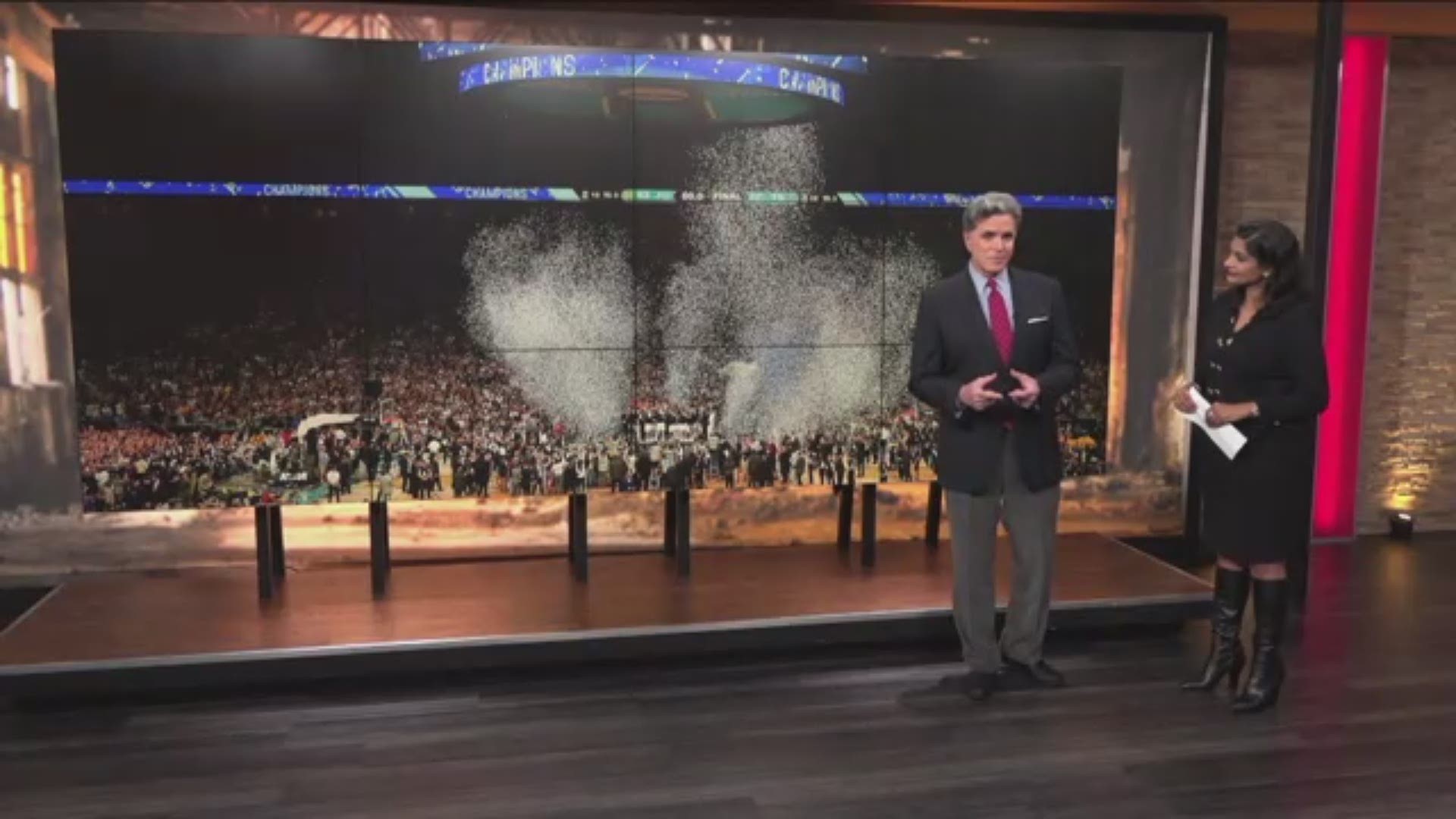ATLANTA — Atlanta is known for its major sporting events as the home to several professional teams.
In just a few weeks, college basketball fans will pack the city for the Final Four and NCAA championship game in Atlanta. The semi-finals will be held at the Mercedes-Benz Stadium on April 4 with the national championship game on April 6.
And as the coronavirus continues to be a global issue, it remains a top subject.
This week, 11Alive spoke to Dr. Sujatha Reddy about the virus's implications to sports and large events. She said people attending large events may have to wait until it gets closer to the event to make a decision about what they should do.
"Everyone is going to have to make, forgive the pun, a game-time decision," she said.
The NCAA is already taking action. Earlier this week, they announced that they had established a COVID-19 advisory panel.
It consists of medical, public health and epidemiology experts along with NCAA member schools who will guide the NCAA's response to the outbreak of the coronavirus disease. Dr. Brian Hainline, the NCAA's chief medical officer will lead the group.
In a March 3 news release, Donald Remy, the NCAA chief operating officer, said they were still planning to conduct the championships as scheduled, but they would make daily evaluations regarding the COVID-19 situation and decide accordingly.
On Friday, the advisory panel released a statement saying the recognized fluidity of COVID-19 and its impact on hosting events in a public space.
"The panel members believe that we need to better understand COVID-19 while continuing to work with local, state and federal health authorities such as the CDC," the statement read. "The key is for all stakeholders and athletes to practice risk mitigation at all events. At present, the panel is not recommending cancellation or public spacing of athletic and related events scheduled to occur in public spaces across the United States."
When 11Alive's Jeff Hullinger asked Dr. Reddy if stadiums could do something to help with prevention and to limit the possibility of contact, she said she's thought about possible ways.
"Perhaps instead of having seats right next to each other, we have space in between, maybe limit which concessions stands, restrict people where they can go, but that really would affect the feel of the game, so I'm not sure," she said.
"I even thought to myself, could people possibly be tested for fever as they're entering as we're seeing with people are getting off airplanes from certain countries," she said ."But we know this virus can be transmitted before someone potentially has a fever, so that may not protect you."
"But, having said that, we know that the vast majority of people that contract the coronavirus will recover with no problem and only mild illness," she added.
OTHER RELATED HEADLINES

